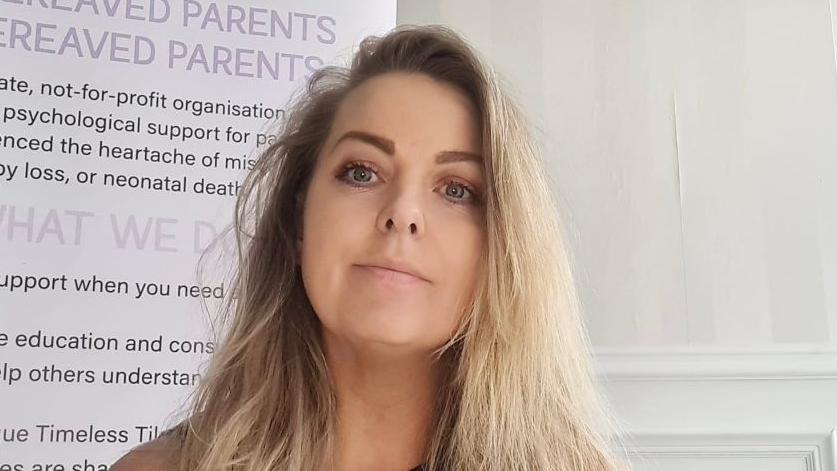'Publishers said baby loss was too sad a subject'
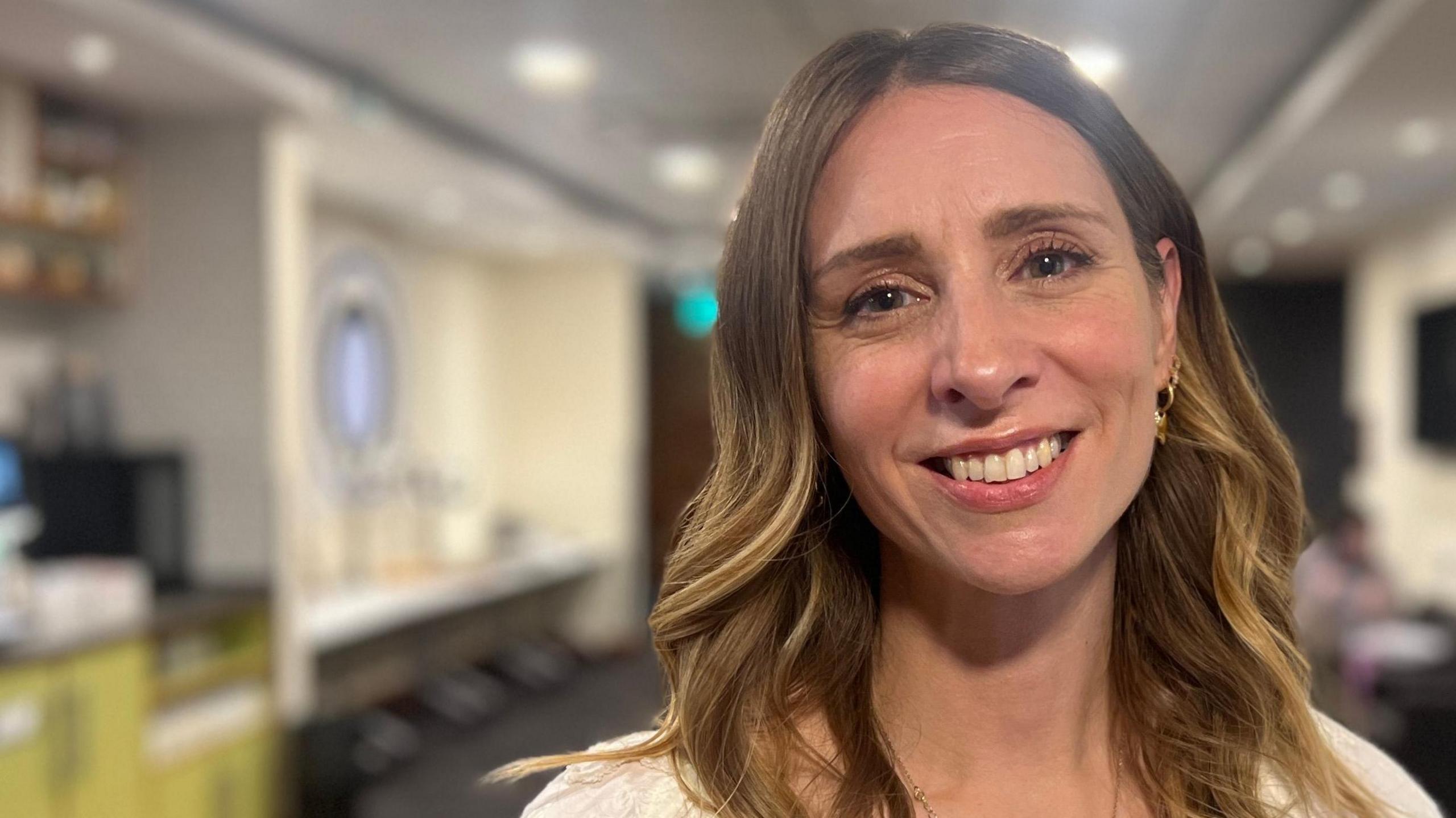
Ali Harris said she hoped writing about baby loss in fictional novels could give a voice to "a community that I feel has been invisible for too long"
- Published
An author says she was left "furious" after being told by publishers and booksellers that novels about baby loss were "too sad" and unmarketable.
Almost a decade after Ali Harris's daughter Poppy was stillborn at 23 weeks, she published This Wasn't Meant to Happen, a fictional novel inspired by her journey.
She had been unable to find any literary references to baby loss that did not use it either as a plot twist in a novel or a topic in a self-help book.
Harris, who lives in Cambridgeshire and grew up in Norfolk, said she was told the topic was "too sad" by "the same publishers who were accepting thrillers about abuse and murder".
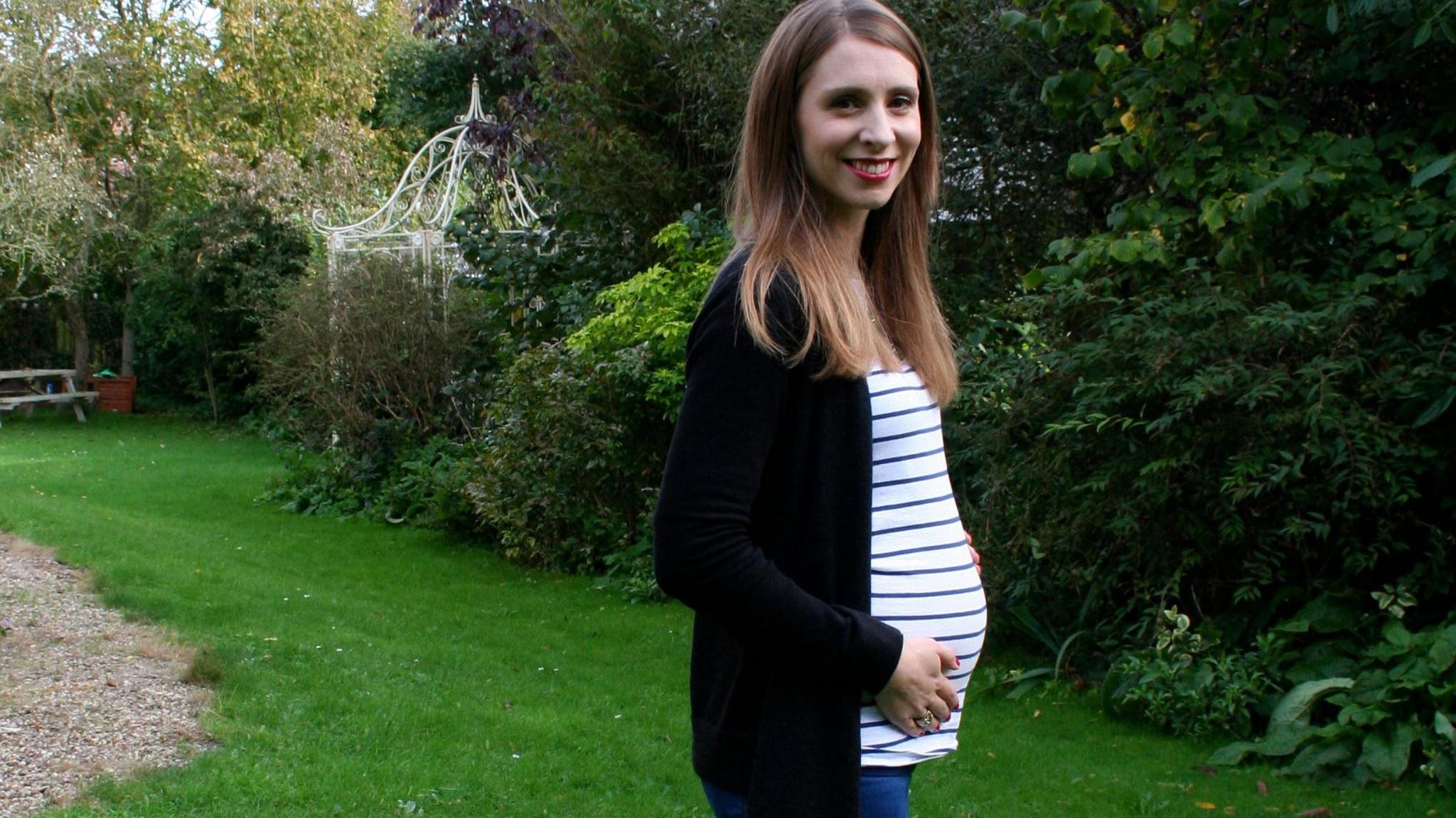
Ali Harris, pictured while pregnant with Poppy, said that after her stillbirth, many people did not know how to react; some avoided her and others issued clichés such as "at least you didn't go full-term"
Harris and her agent tried to find a publisher, but received a wave of rejections that left her "absolutely furious" - not for herself, she added, but for the wider baby loss community.
She said one publisher told her "no-one wants to read about baby loss," while another suggested she turn it into a memoir.
"That one really stung," she said.
The book is a love story about a fictional couple whose lives are altered when their baby boy is stillborn at 39 weeks.
Harris said rather than a memoir, she wanted to write a novel based on lived experience, to connect readers with the topic and raise awareness.
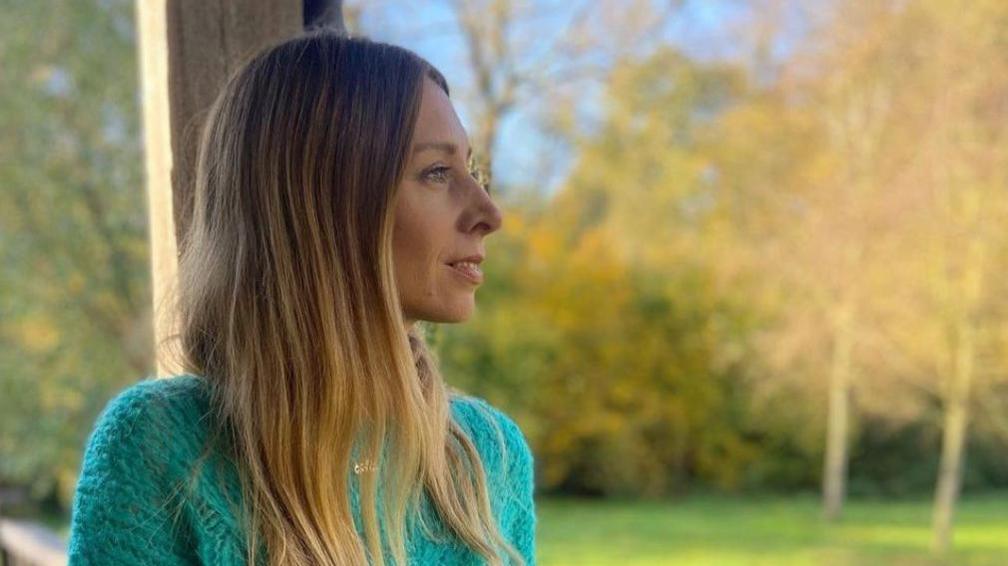
Harris credited her novel to Petals, adding she wanted to see more stories about baby loss on the shelves
Harper Collins One More Chapter agreed to publish the novel, but also faced similar resistance from booksellers.
"[Booksellers told me] 'I'm not sure where to put this' or 'Who's going to want to read it?'" she said.
"It's not like my previous experience of publishing much more commercial books, but for me, it was never about the numbers.
"It's about the people that read it and then hopefully pass it on."
Harris said she knew many families would be carrying their losses quietly and wanted to reflect those realities in fiction, helping them feel less alone and raising awareness with readers.
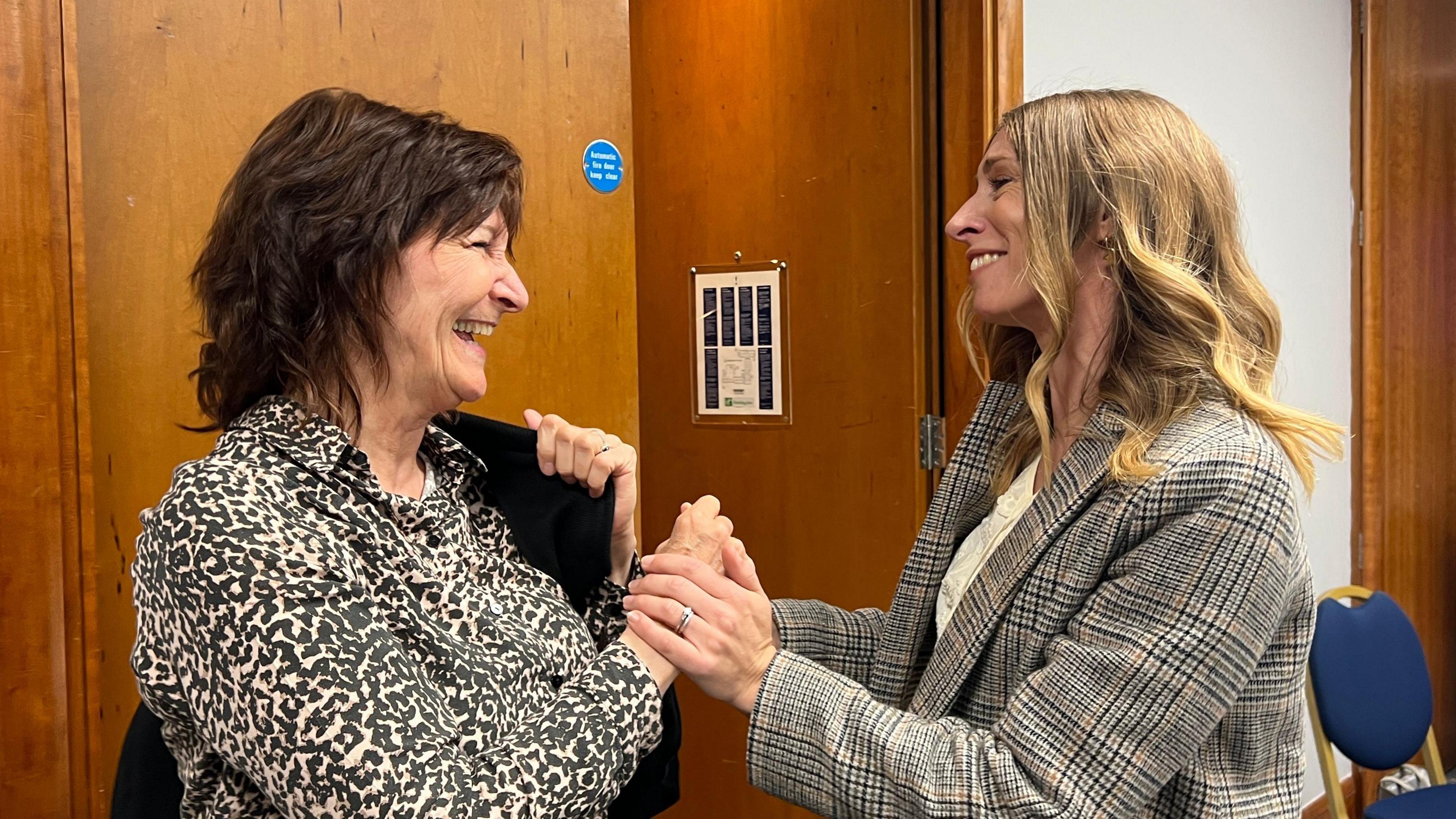
Harris met her Petals counsellor Sue Brookes for the first time in 11 years at a training day in Histon, Cambridgeshire
Harris credited Petals, a Cambridgeshire-based baby loss charity, with helping her speak openly about her daughter.
During one session her counsellor, Sue Brookes, handed her a piece of paper and a pen and encouraged her to write, not for an audience, but for herself.
Harris said Petals became her "lifeline" and gave her back her words.
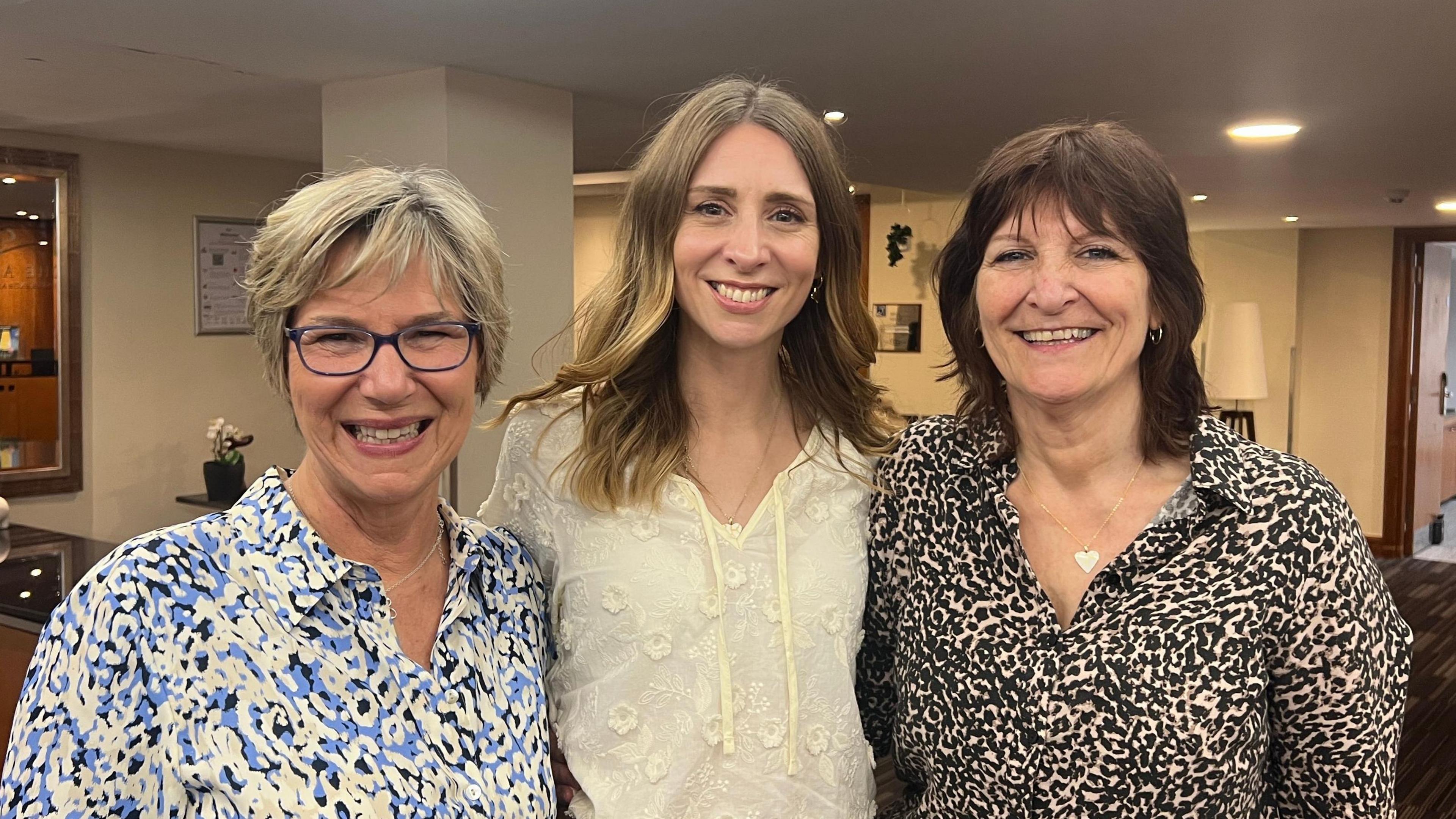
Karen Burgess (left) founded Petals in 2011
Karen Burgess, chief executive of Petals, said she was "not surprised at all" by the rejections.
She believed books such as Harris's had the potential to make the topic of baby loss more "accessible to people who would normally avoid it".
"They can be brought into the story in a gentle way," she added.
Details of help and support with pregnancy-related issues in the UK are available at BBC Action Line.
Get in touch
Do you have a story suggestion for Cambridgeshire?
Follow Cambridgeshire news on BBC Sounds, Facebook, external, Instagram, external and X, external.
Related topics
More like this story
- Published19 August
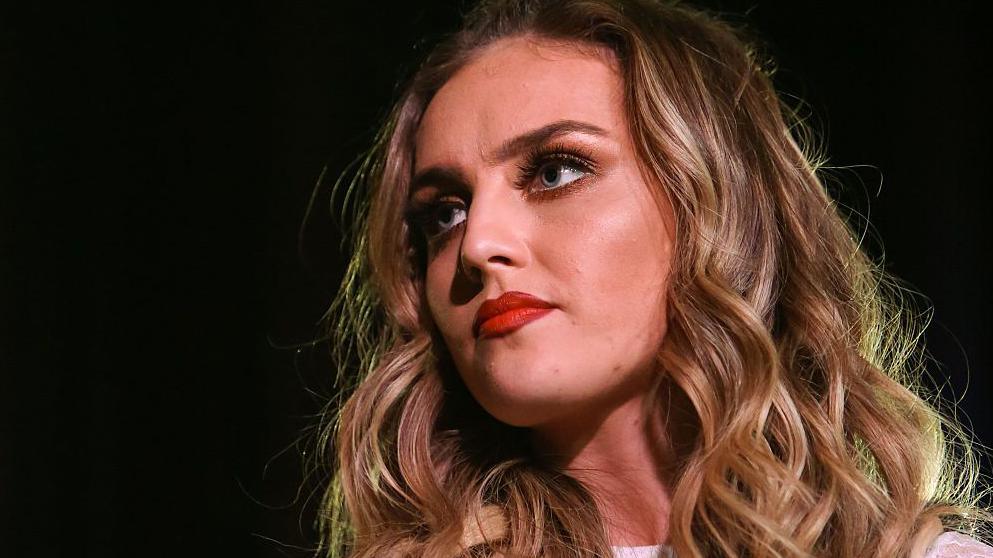
- Published30 July

- Published20 July
